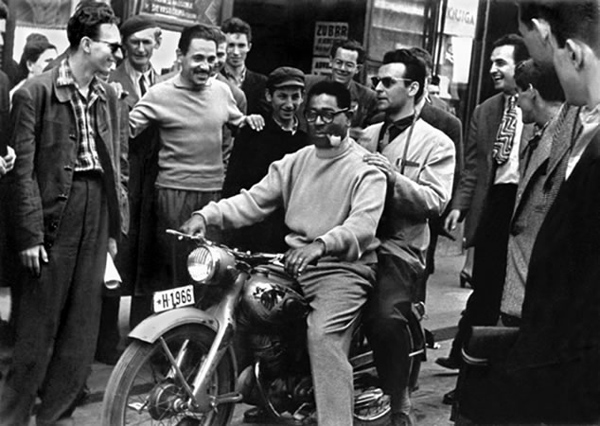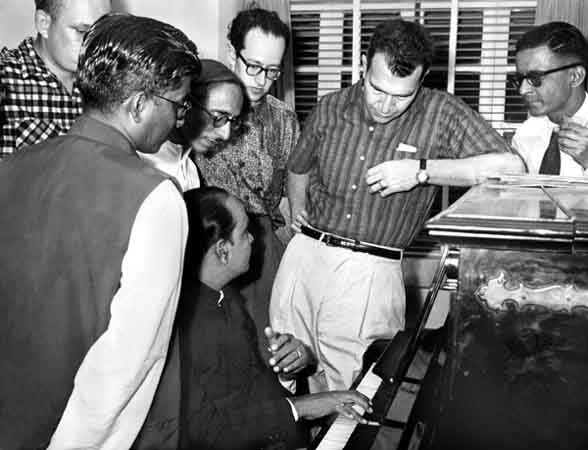Jazz is one of those rare phenomena that resonate across cultures. Meridian couldn’t help but notice the recent American Security Project article by Chad Tragakis about the United States government’s mass export of this American music genre during the 1950s, 60s, and 70s. Jazz diplomacy, as it came to be known, introduced and shared a unique piece of American culture to the world by sending jazz legends, such as Dizzy Gillespie, Benny Goodman, Dave Brubeck, Louis Armstrong, Duke Ellington, Benny Carter, and Sarah Vaughan, to countries in Eastern Europe, the Middle East, Africa, and Asia. Since then, jazz music has been embraced by countries around the world for its “improvisational spirit, [and] expressions of freedom and creativity.”

Zagreb, Yugoslavia, 1956. Courtesy of the Marshall Stearns Collection, Institute of Jazz Studies, Rutgers University.
Meridian is no stranger to Mr. Tragakis’ example of a great cultural understanding effort – you might even recognize a familiar logo in the Department of State brochure he referenced. Meridian curated Jam Session: America’s Jazz Ambassadors Embrace the World in 2008 to document the U.S. jazz diplomacy exchange.This photographic exhibition chronicles the international tours of legendary jazz musicians selected to serve as roving cultural “ambassadors.” Jam Session portrays the journeys of jazz greats who toured 35 countries, where they played their world-famous music and interacted with people abroad — promoting a positive view of the United States at a time when Cold War tensions were at their height. The exhibition has been immensely popular in its international tour to nearly 80 venues in 37 countries – including the Borusan Music House in central Istanbul, Turkey, as part of the 2013 UNESCO International Jazz Day festivities.

Dave Brubeck and Paul Desmond (center) encounter Indian musicians. Bombay, India, 1958. Courtesy of the Brubeck Collection, Holt-Atherton Special Collections, University of the Pacific Library. Copyright Dave Brubeck.
Mr. Tragakis uses the Department of State’s pioneering cultural diplomacy project as a case in point for American businesses and organizations to take stock of what the United States can offer to the world – whether it’s culture or commodities – and to come up with creative ways to find common ground. Any ideas?
















